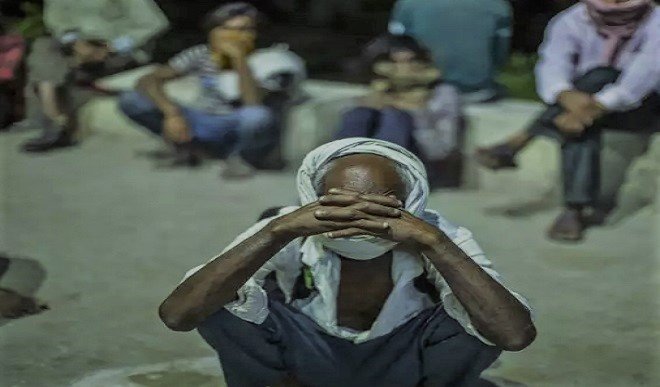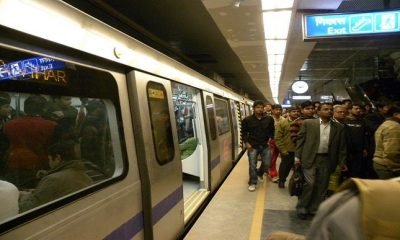National
Inter-State Migration: Analysis in the present Crisis
By Chetna Gupta
Under the clauses (d) and (e) of Article 19(1) of the constitution, citizens have the right to move freely throughout the territory of India and could also reside or settle abroad. If we talk about the inter-state migration, the states which see the largest amount of in-migration are Kerala, Maharashtra, Delhi, Tamil Nadu, Gujarat, Punjab and Haryana and the states that see the largest amount of out-migration are Bihar, Uttar Pradesh, Rajasthan and Assam. So we can see that migration is basically from rural to urban states through which we get a hint of the reasons of such urbanisation. Urbanisation is good for the destination states but, in most cases, not for the people who migrate there and contribute to their economic growth and we will discuss how. After all it brings no improvement in the rural economy, though there may be a minor rise in the standard of living of the migrants migrating for employment. But couldn’t they do better in their own states if they had the facilities there itself? Can the urban states do nothing to solve the issues of the migrants? Well, let’s dig deeper.
विज्ञापन पर सोनिया गांधी के रोक की सलाह का पत्रकार संगठनों ने किया विरोध
Causes of migration
There are many reasons for inter-state migration. While the major reason is to search for employment, the other reasons are business transfers, education, marriage and calamities like drought. Here we will discuss regarding the employment related migration because they are ones who suffer the most. Actually they are occupied with the myth of getting better opportunities in urban cities. Of course, there are better opportunities there but what good opportunity can the unskilled workers get? They are mostly hired at manufacturing factories as direct wage earners or they become self employed as vendors. Our political leaders have always shown a consistent urban bias in favour of ‘large is beautiful’ and ‘foreign is beautiful’ which lures the poor workers in rural states to try their luck in urban states. The reasons also centre on the poor employment opportunities in rural India. In the name of rural development, in fact, ‘capitalism’, rapid industrialization is taking place on the agricultural lands by making the labourers believe that they would be shifted to industries. But it never happens, so where will they go? Even if they do, what about the period during which they have to wait for industries to set up and remain frictionally unemployed when their only source of income is farming? People are losing their basic occupations such as forestry, fisheries, etc because of the building of SEZs (Special Economic Zones). Also, it’s easy to take benefit of the lack of knowledge of these poor workers where majority of them don’t have proper documents to prove their authorization on their lands. Government is introducing beneficial schemes which will work only if they have employment. Even if they are employment generation schemes, people may have to migrate for that.
Trump’s campaign strategist Amrish Tyagi donates 21K Dettol soaps to prevent coronavirus
Effects of Migration
The effects of migration fall on both the urban and the rural cities and mainly the migrants. When the employment opportunities increase in the urban cities, it actually leads to unemployment there because it attracts a lot of migrants leading to shortage of employment opportunities. It also leads to a shortage of shelter, food, water, electricity, etc in the urban cities leading to an increase in urban slums and footpath dwelling which deteriorates its standard of living. But are these the major issues of concern? These issues can be solved to some extent if the migrants are not discriminated and receive proper benefits as the urban residents do and also if they start getting employment opportunities in their state itself. Talking about the major issues, migrants face various challenges and barriers such as language and apathy by the state-level policymakers. The central government schemes are implemented through the state or the local governments which are entitled only to the residents of the respective states, for example- Pubic Distribution System. Thus, the inter-state migrants lose their entitlements by crossing the boundaries of their native state due to which they couldn’t access the jobs, education benefits, welfare benefits, housing, health benefits, social security schemes and even voting in elections in their destination states. Even if the states make some provisions to facilitate benefits or support for the migrants, no steps would be taken to make them aware of those for getting access. Moreover, we can’t ignore the ill-treatment they have to face there. They are underpaid for being unskilled and are threatened to be fired. They have no job security. They are mainly hired through jobbers and contractors and are dependent on them for their wages who exploit the poor migrants. Interviews with the inter-state migrants revealed about their poor quality of life and their yearning to go back home. Let’s discuss a case study to reveal their issues in a better manner.
The flowers that make the mountains blue
Case Study – the most recent COVID-19
It is during the time of such pandemics that the migrant workers suffer the most. Obviously they want to go back to their homes because they lost their jobs and even if they haven’t yet, their salaries are cut or stopped. They know they will lose their jobs soon because they don’t have written job contracts and no one cares about them. They have to do long marches to the stations and bus depots from their rented houses with very little money in their pockets only to find out that the buses have left or the trains are cancelled. Then the lockdown came and all the migrant workers and vendors found themselves unemployed when that was their only source of income. Many construction workers were not eligible for the construction workers’ welfare fund and the contractors were not picking up their phones. The workers had no means to sustain and survive. They were stuck. They say that if they had known it earlier, they would have gone well before. We could see the indignities meted out to them by the police at the bus depots. People are blaming these migrants for the spread of the disease in their states despite their sufferings. Then the state announced that migrants were not allowed to go back except for their goods that they want to send to their family and for compensation, they would be provided with shelter and food facilities. But the decision was too late or too little. Most of them have already left and the accommodations provided were empty. They weren’t even aware of the locations of these shelters and other facilities available. Their landlords were ready to throw them out if they didn’t pay the rent timely. At this point, they just wanted to go home. And even there, they weren’t welcomed because of the suspicion of being infected.
So, in order to protect the livelihood of these migrants, government should come up with beneficial schemes for them and make them aware of that. Better opportunities should be created at their own states and discrimination and apathy against them should be prevented. They are invisibly biggest contributors of the Economic growth of our country.






















